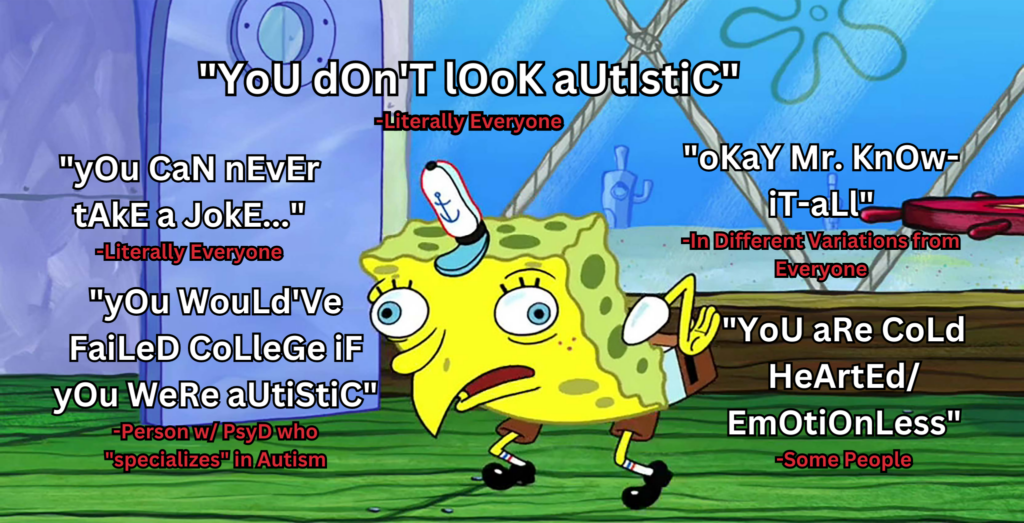April 2nd is World Autism Awareness Day and it’s Autism Awareness Month! World Autism Awareness Day and Autism Awareness month draws attention to the need for growing innovative programs that are designed to support those with autism. I feel like there’s a need for supporting people more than just supporting programs. Reason being, in order to make autistic people feel seen, heard and understood, we must start with people. And as a fellow autistic person, I want to share my experiences and give insight on how people can be more supportive.
The Need for Support
My biggest struggle as an autistic high functioning/masking adult is that people don’t see me as an autistic individual. And that’s a problem! It does get frustrating for me. Mainly because my actions are typically taken in another way and/or I get discredited for being autistic. Which invalidates how I feel at times, and even my needs. So being cognizant over labeling someone as high functioning is important!
I do want to clarify that being autistic doesn’t mean that we are incapable. There were times where I was treated and talked to like I was a child because I made people aware that I was autistic. I was extremely aware that people who do that typically don’t fully understand autism and aren’t comfortable. However, a good portion of this treatment came from licensed clinicians, people with a PsyD, and/or PhD in psychology who don’t fully understand how to navigate autism.
Part of My Experience as an Autistic Person

These are just a few things I’ve heard either my entire life or from people in general. We should spend time to #StopJudging, #StopTheStigma, and #BeMoreAware.
Hearing some of these things makes me feel misunderstood and frustrated. However, hearing things about not looking autistic makes me question someone’s entire thought process. Especially the comment about my ability to pass my college courses. Like, where are people getting their information from? And it’s all about stigmas!
To explain the “different variations” under the Mr. Know-It-All quote, people typically complain when I correct their harmful stigmas. I can say that I strongly dislike having to educate people on their ignorance and inaccurate perceptions. Mainly because I do it so often that people either ignore me or that I hear people complain about how I’m too uptight, I always correct them or I get called a Mr. Know-It-All. If you don’t want to be corrected, be more aware of your harmful language and/or the harmful stigmas that you are perpetuating. Fix how you are talking.
This is How you can Support Autistic People
This biggest “rule” of support here is to believe a person when they say they are autistic even if they are a high functioning/masking adult. Here are additional ways you can support autistic individuals:
- #StopTheStigma; stop saying things that are exemplified in the image above. You might see something as a compliment but it only perpetuates the continuation of harmful stigmas.
- Don’t treat or talk to an autistic individual like a child. Ask if we need help with something that shows that we are struggling. And if the help is declined, don’t take it personal!
- Understand that we experience emotions and are capable of empathy!
- Don’t take our actions in a personal way. Trust me, we are not being rude or are doing things that make you feel some type of way, annoyed, etc. on purpose.
- Please be patient with autistic individuals! Your patience means a lot!
- Be direct with autistic individuals. I definitely have a hard time taking a hint and taking things as jokes.
- Get to know the person as a human! Don’t rely solely on online information! Don’t discredit that someone is autistic because they are high functioning/masking.
- Ask how you may be able to help in certain situations when you are unsure! It’s nice when people try to understand how to navigate a situation.
- Autistic people are not your walking encyclopedia! Don’t treat them as such! If they enjoy discussing a topic, by any means, ask the question.
Reminder: Every autistic person isn’t the same! And, every autistic person experiences themselves differently. So please get to know someone first!
– Dez 🙂




